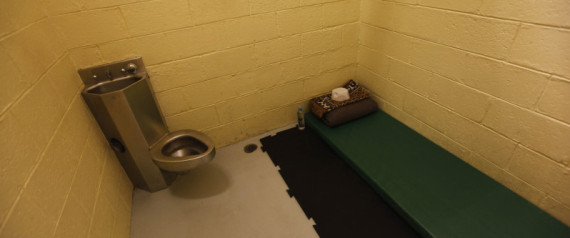Afghanistan Secret Prisons Confirmed By U.S.

Afghanistan Secret Prisons Confirmed By U.S.

KABUL, Afghanistan "Black sites," the secret network of jails that grew up after the Sept. 11 attacks, are gone. But suspected terrorists are still being held under hazy circumstances with uncertain rights in secret, military-run jails across Afghanistan, where they can be interrogated for weeks without charge, according to U.S. officials who revealed details of the top-secret network to The Associated Press.
The Pentagon has previously denied operating secret jails in Afghanistan, although human rights groups and former detainees have described the facilities. U.S. military and other government officials confirmed that the detention centers exist but described them as temporary holding pens whose primary purpose is to gather intelligence.
The Pentagon also has said that detainees only stay in temporary detention sites for 14 days, unless they are extended under extraordinary circumstances. But U.S. officials told the AP that detainees can be held at the temporary jails for up to nine weeks, depending on the value of information they produce. The officials spoke on condition of anonymity because the program is classified.
The most secretive of roughly 20 temporary sites is run by the military's elite counterterrorism unit, the Joint Special Operations Command, at Bagram Air Base. It's responsible for questioning high-value targets, the detainees suspected of top roles in the Taliban, al-Qaida or other militant groups.
The site's location, a short drive from a well-known public detention center, has been alleged for more than a year.
The secrecy under which the U.S. runs that jail and about 20 others is noteworthy because of President Barack Obama's criticism of the old network of secret CIA prisons where interrogators sometimes used the harshest available methods, including the simulated drowning known as waterboarding.
Human rights advocates say the severest of the Bush-era interrogation methods are gone, but the conditions at the new interrogation sites still raise questions. Obama pledged when he took office that the United States would not torture anyone, but former detainees describe harsh treatment that some human rights groups claim borders on inhumane.
More than a dozen former detainees claimed they were menaced and held for weeks at the Joint Special Operations Command site last year, forced to strip naked, then kept in solitary confinement in windowless, often cold cells with lights on 24 hours a day, according to Daphne Eviatar of the group Human Rights First, which interviewed them in Afghanistan.
Eviatar said her monitoring group does not believe the JSOC facility is using the full range of Bush-era interrogation techniques, but she said there's a disturbing pattern of using fear and humiliation to soften up the suspects before interrogation.
Afghanistan Secret Prisons Confirmed By U.S.

